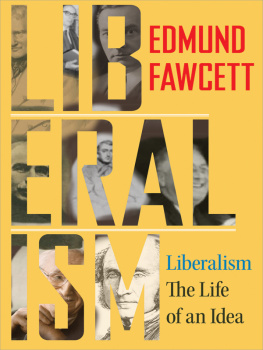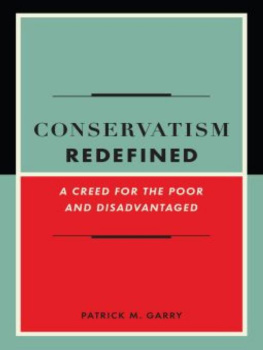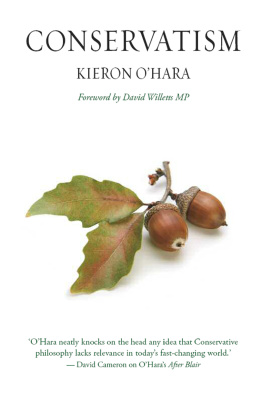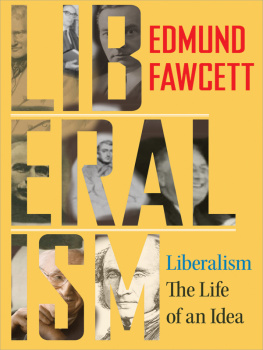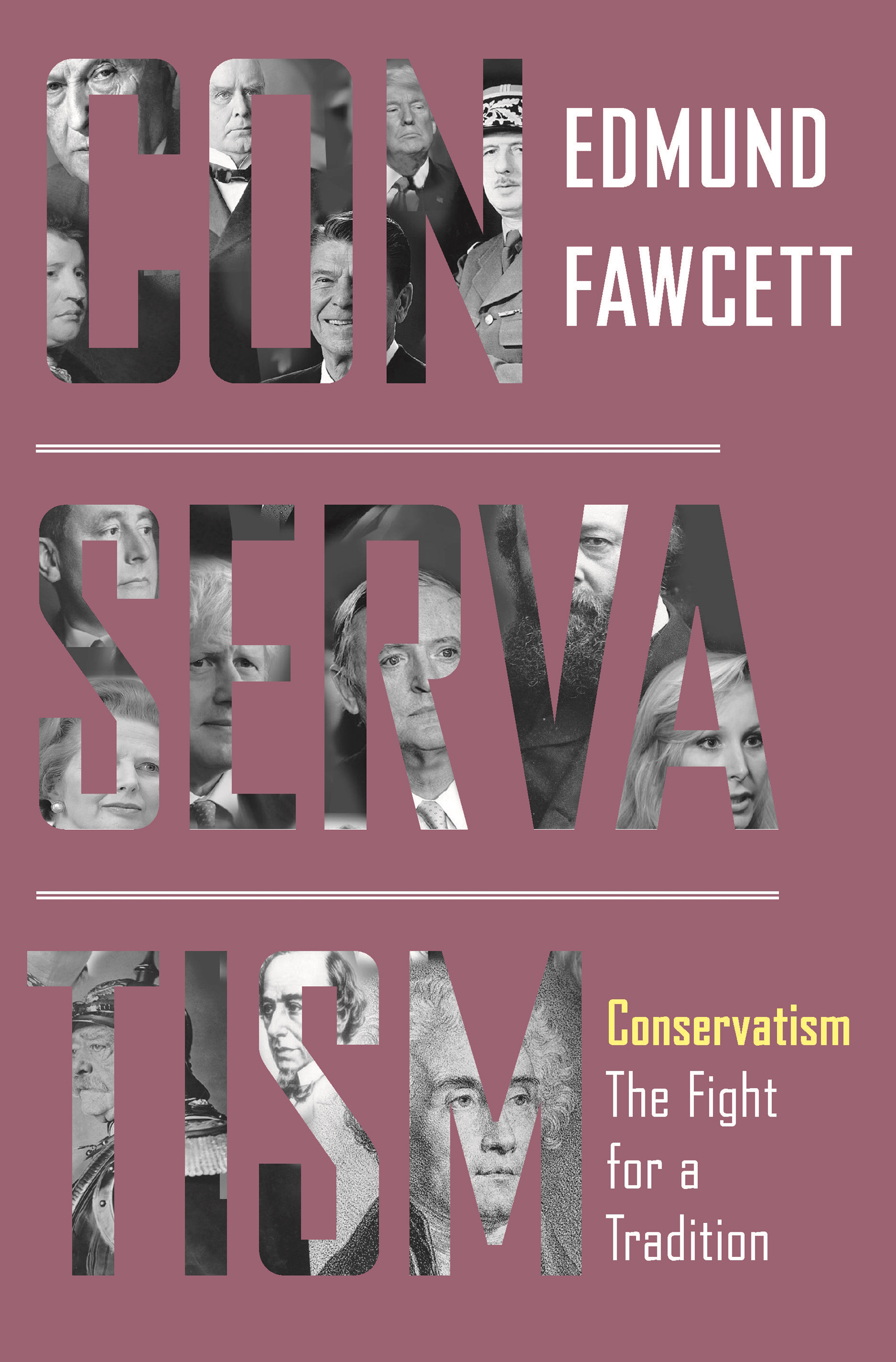Requests for permission to reproduce material from this work should be sent to permissions@press.princeton.edu
Jacket images: ROW 1: Edmund Burke, Konrad Adenauer, William McKinley, Ronald Reagan, Donald Trump, Charles de Gaulle; ROW 2: Margaret Thatcher, Carl Schmitt, Boris Johnson, William F. Buckley, Robert Gascoyne-Cecil, 3rd Marquess of Salisbury, Marine Le Pen; ROW 3: Otto von Bismarck, Benjamin Disraeli, Joseph de Maistre
PREFACE
To survive, let alone flourish, liberal democracy needs the rights support. It needs, that is, conservatives who accept liberal and democratic ground rules. Yet conservatism began life as an enemy of liberalism and never fully abandoned its reservations about democracy. Conservatism endured in modern politics by cooperating with liberalism and soon learned how to prevail in democracy. Liberal democracy of the kind that thrived in Western Europe and the United States after 1945 grew from that historic compromise by the right. When, as now, the right hesitates or denies its support, liberal democracys health is at risk.
With the left in retreat, both intellectually and in party terms, the right commands politics at present. But which right is that? Is it the broadly liberal conservatism that underpinned liberal democracys post-1945 successes or an illiberal hard right claiming to speak for the people?
By saying what liberal democracy is and why for all its flaws and vulnerabilities it matters, Liberalism: The Life of an Idea (2nd ed., 2018) aimed to show what we risk losing. Conservatism: The Fight for a Tradition is the other half of the story. It describes the rights present contest with itself in the light of the past.
Conservatives from the start have quarreled with each other as well as with liberalism and democracy. Should they compromise with their historical opponents, or resist? Should the fight be primarily in party politics over power and government, or in intellectual and cultural life? Those questions for conservatives have never gone away. A chaos of voices has often made it hard to say what, if anything, conservatives stand for. At the same time, the very fierceness and endurance of the contest suggests that all sides have believed that there existed something tangible worth fighting for.
Conservatisms history is told here in four periods, given artificially sharp dates for clarity: frontal resistance to liberal modernity (18301880); adaptation, compromise, and catastrophe (18801945); political command and intellectual recovery (19451980); and the contest for supremacy between liberal conservatism and the hard right (1980 to the present).
In each of the four periods, a party-political narrative (Parties and Politicians) is followed by a characterization of conservative thought at the time (Ideas and Thinkers). The first recounts the endless adventure of governing menmore lately, governing womenas parties of the right form, split, and re-form in a running conservative renegotiation with liberalism and democracy. The second describes the public appeals, defenses, and philosophical vindications by writers, journalists, speechwriters, and thinkers working in the conservative tradition. As their words multiplied, a conservative outlook emerged, loose and tangled to be sure, but recognizable and, roughly speaking, continuous. Its particular content changed over time, but its broad character stayed the same.
Conservatives throughout were guided by a wise angel and by a worldly angel. In the perplexing rush of modern change, they have spoken to a universal human desire for familiarity and stabilityfor tomorrow to be like today. As defenders of order and property, however, conservatives overcame their hesitations and soon spoke up for capitalism and its demandsthe great servant of material progress that restlessly turns society, lives, and outlooks upside down.
Conservatives, that is, have forever faced two ways. They promise stability and upheaval, continuity and disruption. By temperament, they swing from confidence in their record and pride in their creed to fear that success will be snatched away and that their beliefs are widely ignored. Puzzling as it sounds, conservatives have largely created and learned to dominate a liberal modern world in which they cannot feel at home.
The focus is on four countries: France, Britain, Germany, and the United States. That choice may look like chauvinism. The excuse is that liberal democracy is a framework of politics with distinctive values on which those four countries, despite obvious differences or provincialism, all converged in the twentieth century, especially after 1945. There is nothing eternal about liberal democracy. Many shrewd and well-informed people worry that its day is already done. Whether they are right or wrong, few will quarrel that these large countries represent liberal democracys historic, albeit nonexclusive, core.
Readers already confused by the labels and categories herenotably the interchangeable use of conservatism and the rightare urged to glance at appendix A, Conservative Keywords, where the books main terms are pinned down and ground-floor distinctions made. The , Character, Outlook, and Labelling of Conservatism, addresses such general matters more fully. A second appendix, Philosophical Sources of Conservative Thought, recalls thinkers from Plato onward, on whom conservatives (among others) have drawn. A third appendix, Conservatives: A Gazetteer, gives micro-lives of more than two hundred conservative politicians and thinkers. This extended historical essay has neither footnotes nor scholarly bibliography. In Works Consulted, readers can find works from which the essay grew and which they may want to look into themselves.
As a left-wing liberal, I do not claim that this history is neutral. I trust it is objective. I have tried to avoid two standbys of political writing, celebration and caricature. If that has worked, readers on the right will recognize themselves and their tradition. Readers on the left will get a view of their opponents position, which they are prone, like rash chess players, to ignore. Conservatism: The Fight for a Tradition is written in comradely spirit with a question for the left: if were so smart, how come were not in charge?
Conservatisms epic is told here in recognition, puzzlement, and alarm: recognition of the rights party-political and intellectual strengths; puzzlement at neglect of those strengths, by a left that knows too little of how the right thinks and by a right that exaggerates its own intellectual and cultural disadvantages;


